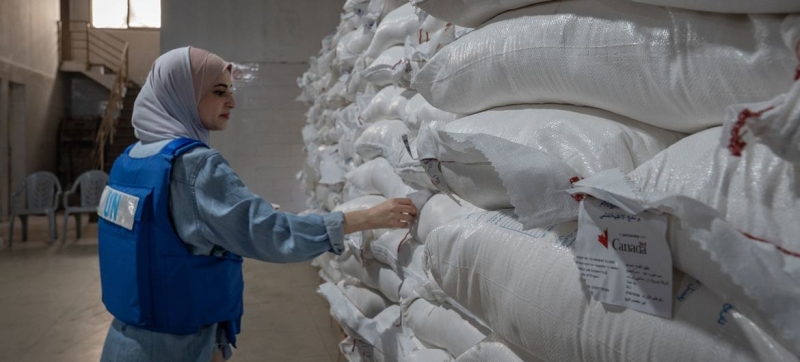
On the Palestinian side of the Kerem Shalom crossing, more than 300 trucks carrying humanitarian aid were received from Friday to Saturday. Severe water and food shortages persist in Gaza Humanitarian assistance
Since the start of the ceasefire in the Gaza Strip, more than 470 thousand cases of civilian displacement to the north of the enclave have been recorded. This was reported on Monday by the UN Office for the Coordination of Humanitarian Affairs (OCHA). Many families are returning to devastated areas where they are threatened by collapsed buildings and unexploded ordnance.
“Water, food and vital services remain in short supply,” OCHA said, noting that humanitarian organizations are working to quickly meet growing demand amid widespread destruction.
Humanitarian supplies aid
Humanitarian aid continues to arrive in Gaza: more than 300 truckloads of humanitarian aid were received at the Palestinian side of the Kerem Shalom crossing from Friday to Saturday. The deliveries included flour, canned food, rice and ingredients for hot meals, as well as medical equipment, tents, awnings and winter clothing. Hygiene kits, post-natal care kits and shelter materials also arrived in the sector on Sunday, according to the UN. The UN Office for Project Services distributed approximately 329 thousand liters of diesel fuel to support hospitals, communications and food services.
Hot meals and bread
Humanitarian partners, supported by 170 community kitchens, have already provided more than a million hot meals, mostly in southern and central Gaza. In Deir al-Balah, Khan Younis and Gaza, 15 UN-supported bakeries produce bread daily, which is distributed free to shelters and communities. In parallel, work is underway to reduce the risk from unexploded ordnance as people begin to return to their homes. Over the weekend, nearly 3,200 residents of central and southern Gaza received safety training. Since October 2023, according to OCHA, there have been 150 incidents involving explosive ordnance, including children.
Violence in the West coast
Violence continues in the occupied West Bank due to the olive harvest season, which began on October 9. More than 85 attacks by settlers on Palestinian farmers and their lands have disrupted harvests. More than 110 people were injured and over 3,000 trees were damaged in 50 villages. In the past week alone, there have been 17 attacks, mostly in the Ramallah area. “Such incidents are destroying livelihoods and increasing fear in farming communities,” OCHA said. “Despite the flow of aid, the UN warns that many Gazans are still deprived of basic necessities. There is a shortage of food, water and shelter, but people take risks just to return home.
